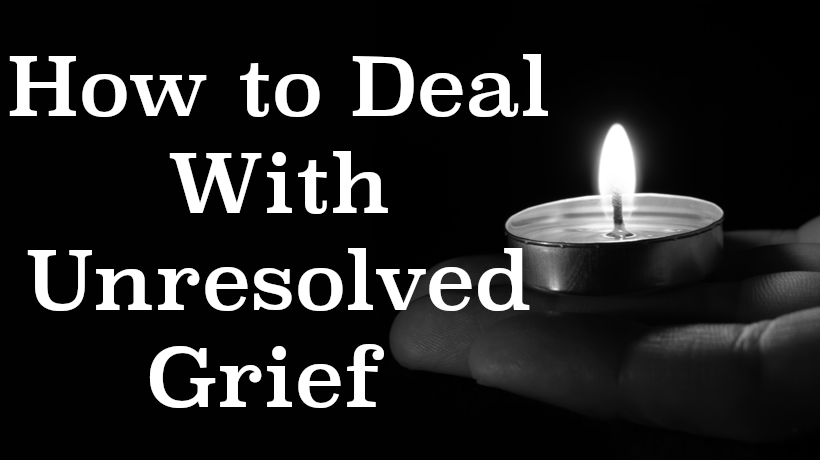Unresolved grief is different from normal grief in many ways. It lasts much longer, it is more severe and intense, often worsening with time and it interferes with a person’s ability to function normally in their daily life. According to Rachel Eddins, M.Ed., no matter the circumstances of the loss, the common thread is that the sufferer tries to deny or avoid the normal aspects of their grief. Avoiding grief can hinder the healing process and leads to unresolved grief.
If you are experiencing unresolved grief, there are ways to help move through the stages of grief. It may take some time for them to work, and for the pain to hurt less, but it is possible.
Understand What Triggers Your Feelings
Running and hiding from your grief will not help you in any way, it can be hard, but it is important to acknowledge the feelings that come with losing someone. You need to experience the pain before being able to move past it. Sometimes holidays or specific days can intensify these feelings of grief but being proactive can help you deal with the pain. According to Angela Morrow, RN, the more you know about grief and dispel the myths surrounding it, the more you will realize that your grief is normal. Morrow says you might also discover warning signs that your grief is complicated, and you need more help to cope.
Ask for Help from Others
It is difficult to try and handle grief alone, it is helpful to have support and care from others. You can reach out to a family member or friends that you feel comfortable sharing these feelings. The people who know you the best will do everything they can to support you. Eddins suggests that grief counseling can help you heal no matter what type of grief you are experiencing. For those with unresolved grief, it can be helpful through guidance on how to understand grief reactions and symptoms, explore happy memories about the loved one, and adjusting to the loss by improving coping skills.
Express Yourself
Grief can bring different feelings to the surface and it is important to acknowledge and accept that they are part of the natural grieving process. Expressing those feelings of either anger, sadness, or longing can help you deal with unresolved grief. Other ways to express your feeling can be through music, art, poetry, or journaling. According to Morrow, whether you express your grief with a safe person you trust or let it out in complete privacy, expressing your feelings is the only true way to honor your grief.
Remember It Can Be a Long Experience
Grief can be a different experience for every individual. People react differently and can have different coping mechanisms for grief. According to the American Psychological Association, research shows that most people can recover from loss on their own through the passage of time if they have social support and healthy habits. It may take a long time, but it is possible for you to continue with life. It may feel like you may never be fully “resolved” but with time it will get easier. If it seems impossible, remember to consider grief counseling to help you find a way to begin handling this grief. It is important to be kind and comfort yourself on hard days, eventually, you will find your personal way of handling it.



